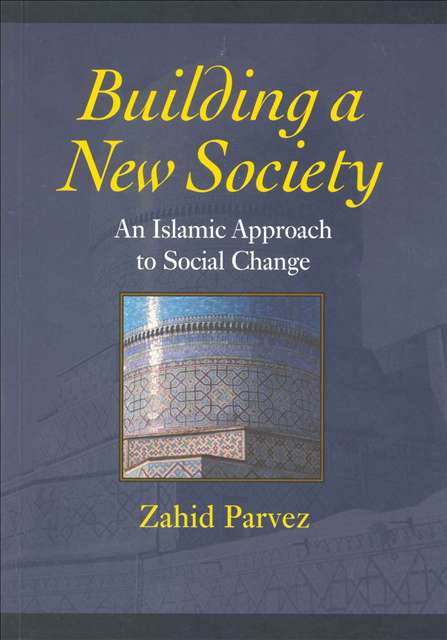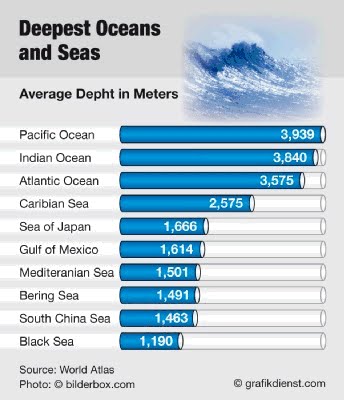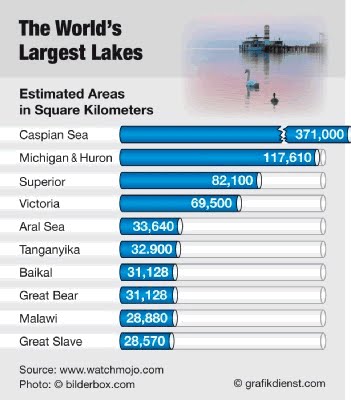These past few years have been miserable for money. The stock market has tumbled, unemployment has soared, the housing market has continued to crumble, and retirement savings have shriveled away. Whew! Here’s hoping the next few years will be better!
But hope can only do so much. Hope cannot bring change; action brings change.
If one of your goals is to take control of your money (instead of letting it keep control of you), this crash course in financial basics can help guide the way. Here are nine simple, but effective, actions you can take to build a better financial future.
Method #1: Track Every Penny You Spend
The authors of Your Money or Your Life admonish readers to “keep track of every cent that comes into or goes out of your life.”
This is the best way to become conscious of how money actually comes and goes in your life as opposed to how you think it comes and goes. This is the step that somehow makes the biggest impact. It doesn’t matter how you track your spending—the most important thing is to do it.
* You can use a cash notebook.
* You can use an online tool like Wesabe, Mint, or Quicken Online.
* You can use a piece of software like Quicken or Microsoft Money.
Whichever method you choose, stick with it. Make it a habit. Don’t fudge the numbers. Record your transactions as soon as possible. Most of all, don’t judge yourself. Tracking your spending is an exercise in data collection; it’s not the appropriate time to change your habits.
Method #2: Develop a Budget
After you’ve tracked your spending for a few weeks (or months), use the data you’ve collected to develop a budget. According to The Millionaire Next Door, budgeting is one thing that sets the wealthy apart from the rest of us—55 percent of millionaires keep a budget.
Many people—myself included—fail to budget for a variety of reasons: it’s boring, we don’t think we need it, or we don’t know how. But this simple act can provide a roadmap for your money.
There are a variety of budgeting methods you can choose, from Andrew Tobias’ three-step budget to the 60 percent budget. My recent favorite (and a favorite of GRS readers) is Elizabeth Warren’s balanced money formula: 50 percent to Needs, 20 percent to Savings, and everything else to Wants. Simple but effective.
Crave more budgeting tips? Check out this article highlighting thirteen tools for building a better budget. Hate the idea of budgeting? Consider the spending plan, a budgeting method for non-budgeters.
Tip! Spend less than you earn. This is the fundamental money skill. It’s common sense, yet many people never learn to do it. Only by spending less than you earn can you hope to build wealth. This is easier to do if you track your spending and develop a budget, but those steps aren’t completely necessary. Even if you do nothing else in this list, spending less than you earn can put you ahead of your peers.
Method #3: Optimize Your Accounts
For eighteen years, I was an account holder at a large national bank. I paid an eight dollar “service charge” every month, as well as many other fees. I received terrible service and earned no interest. Over the last couple of years, I’ve finally begun to optimize my accounts. If you haven’t already done so, consider the following:
* Open an online high-yield savings account. Even in this era of low interest rates, it’s still possible to earn about 3 percent on your savings. Internet favorite ING Direct currently offers a 2.50 percent APY, and FNBO Direct offers a 2.80 percent APY. These rates are about as low as they can go, and should increase in the months and years ahead. And if you don’t need as much liquidity with your investments, consider researching CD rates which may offer a higher interest rate.
* Choose a rewards checking account. Believe it or not, it’s possible to find checking accounts that pay interest. Online checking accounts generally pay between 1 percent and 3 percent, depending on your balance. But you can usually find an even better deal through your local bank or credit union. Check out this huge list of rewards checking accounts.
* Use a rewards credit card. If you have trouble with credit, it’s best to avoid plastic altogether. If you can use credit responsibly, be sure to choose a credit card that pays you. Avoid cards that carry an annual fee. Find a rewards program that matches your lifestyle. But don’t choose a card just because it offers a signup bonus or because it gives you a discount at your favorite store. Remember: your goal is to find a useful tool. Look for a long-term relationship you can live with.
It’s important to choose accounts and systems that work for you. I signed up for a rewards checking account at a local credit union, but the nearest branch is fifteen minutes out of my way. I never use it. I had to compromise by opening on online checking account instead. I earn a lower rate, but it’s an account I’ll actually use.
Tip! When optimizing your banks and credit cards, consider using multiple accounts at each institution. For example, I have ING Direct subaccounts that allow me to target my savings. I save for vacation in one account, for a car in another, and I use a third account for emergency savings.
Method #4: Start an Emergency Fund
For years, I lived paycheck to paycheck. I spent everything I earned. This worked well until something went wrong. Suddenly I’d find myself without money to pay for a car repair, or facing an expensive doctor’s bill. I financed emergencies with credit cards. I finally paid off all of this debt at the end of 2007.
After you’ve optimized your accounts, make it a priority to save for emergencies. In The Total Money Makeover, Dave Ramsey explains why he believes an emergency fund should come before anything else:
“Since I hate debt so much, people often ask why we don’t start with the debt. I used to do that when I first started teaching and counseling, but I discovered that people would stop their whole Total Money Makeover because of an emergency—they felt guilty that they had to stop debt-reducing to survive.”
After you’ve saved $1000, then you can attack your debt. Open an online high-yield savings account and add twenty or fifty dollars to your account every time you get paid. Two years ago, I opened an account at ING Direct, where it’s simple to schedule automatic deposits.
Method #5: Get Out of debt
Are you struggling under a heavy debt load from credit cards or student loans? Make it a priority to unload some of this burden this year. At the end of 2007, I said goodbye to twenty years of debt—it feels fantastic to have that weight off my shoulders.
If you have the mental discipline, you’ll save money by paying down your high-interest debt first. But if you’ve tried that method before and failed, consider using a debt snowball. Pay your debts starting with the smallest balance first. Here’s how:
1. Order your debts from lowest balance to highest balance.
2. Designate a certain amount of money to pay toward debts each month.
3. Pay the minimum payment on all debts except the one with the lowest balance.
4. Throw every other penny at the debt with the lowest balance.
5. When that debt is gone, do not alter the monthly amount used to pay debts, but throw all you can at the debt with the next-lowest balance.
The debt snowball can give you awesome psychological payoffs, keeping you motivated to stay in the game. It’s not mathematically ideal, but it worked for me (and for many others). However you choose to get out of debt, stick with it. Don’t give up.
Tip! The perfect choice is the enemy of the good. When you spend so much time looking for the “best” choice that you never actually do anything, you’re sabotaging yourself. And an ideal solution that you don’t follow through with is worse than a good solution that you’ll actually use. Choose a good option and act.
Method #6: Fund Your Retirement
The current economy gives many people the jitters. But if history is any indication, now is a great time to be buying stocks for your retirement. Take advantage of any employer-matched opportunities, such as a 401(k). Also, consider starting a Roth IRA.
If you’re young, you probably don’t think you need to start a retirement account. You’re wrong. No matter how old you are, now is the time to begin saving for retirement. The extraordinary power of compound interest favors the young—and in a big way! In The Automatic Millionaire, David Bach writes:
“The single biggest investment mistake you can make [is] not using your [retirement] plan and not maxing it out.”
After reading The Automatic Millionaire a couple years ago, I opened a Roth IRA at Sharebuilder. It was easier than opening a checking account. I managed to make the maximum contribution in 2006 and 2007. In 2008, I maxed out my 401(k).
Don’t understand retirement accounts? No problem. Last year I explained what a Roth IRA is and why you should care. For more ideas, check out Wesabe’s simple investing group.
Method #7: Automate Your Finances
For the past eighteen months, I’ve been moving toward a system of paperless personal finance. Along the way, I’m learning the value of automating routine transactions. When you make things automatic, you remove the human element, making it more difficult for you to mess things up.
The classic example is overdraft protection. By tying your checking account to your savings account, you have a safety net if you bounce a check. But there are other ways this can work for you. For example, I’ve set up automatic payments with the gas company, the cable company, and my auto insurance company. I also make automatic deposits to my online savings account.
One terrific advantage to automation: when you pay your bills and do your saving and investing automatically, it’s easy to tell how much you have left over to spend at the end of each month!
Tip! Do what works for you. There are few hard-and-fast rules in the world of personal finance. I can suggest methods that have worked for me (and for others), but only you can determine if these methods are appropriate for your own circumstances.
Method #8: Earn Extra Money
You can meet a lot of your financial goals by reducing your spending and using the right tools. But nothing supercharges your progress like a boost in income. How can you earn extra money?
* Ask for a raise. Several readers have written to tell me how they’ve given themselves a raise through ambition and ingenuity. Here’s one example.
* Switch employers. Not every employer is able or willing to offer raises, even when they’re merited. If you’re in a position where a raise isn’t possible, consider finding a new employer.
* Take a second job. Many people find that the best way to get out of a financial hole is to temporarily take a second job. Nobody wants to work more than forty hours per week, but sometimes that’s what’s needed to get out of debt or to save for a house. Just remind yourself that you’re doing this for a short time.
* Use your hobbies. Yes, it’s possible to have moneymaking hobbies. You’re not going to get rich playing World of Warcraft, but many people use productive hobbies to earn a little extra income.
* Volunteer for medical research. Last summer, I earned $120 for a couple of hours spent participating in medical research. My colleague Donna Freedman has earned extra cash by giving blood and watching porn (though not at the same time).
* Sell things. When I decided to get out of debt, one of my first steps was to sell a bunch of the stuff I’d bought with that $35,000. I used eBay, Craigslist, garage sales, and the Amazon Marketplace to sell the things I no longer needed or wanted. The money I earned jump-started my debt reduction.
Another effective way to increase your income is to pursue entrepreneurship. While working to defeat my debt, I started a small computer-consulting business. It didn’t generate a lot of income, but it did provide $2,000 a year that I wouldn’t have had otherwise!
Method #9: Educate Yourself
Knowledge is power. Personal finance doesn’t have to be a mystery. Subscribe to this site. Read other personal finance blogs. I recommend:
* The Simple Dollar
* I Will Teach You to Be Rich
* The members of the Money Scribes network
* The members of the LifeRemix network
Visit your public library. Borrow money books and self-development manuals. Here are four of my favorites:
* If you’re in debt and can’t seem to find a way out: How to Get Out of Debt and Live Prosperously
* If you’d like to know more about investing: The Random Walk Guide to Investing
* If things are tight and you need to find creative ways to make ends meet: The Complete Tightwad Gazette
* If you want a motivational manual to prompt you to pursue your goals: The Magic of Thinking Big
You don’t have to agree with everything in a book to get something out of it. I read a lot of personal finance books—some are good, but many are not. Even the worst books usually have one or two things I can pull from them. Learn how to read a personal finance book so that you can pick and choose those pieces appropriate for your life.
Final Thoughts
Taking control of your finances can be intimidating— there’s so much to do—but it doesn’t have to be that way. One effective solution is to take a vacation day from work: designate one specific date as your personal Money Day. Use this day to finally set up Quicken on your computer, to open a retirement account, and to call around for a better deal on your insurance.
The good news is that you can get out of debt. You can save for retirement. If I can do it, so can you. Best wishes for a prosperous new year.








































